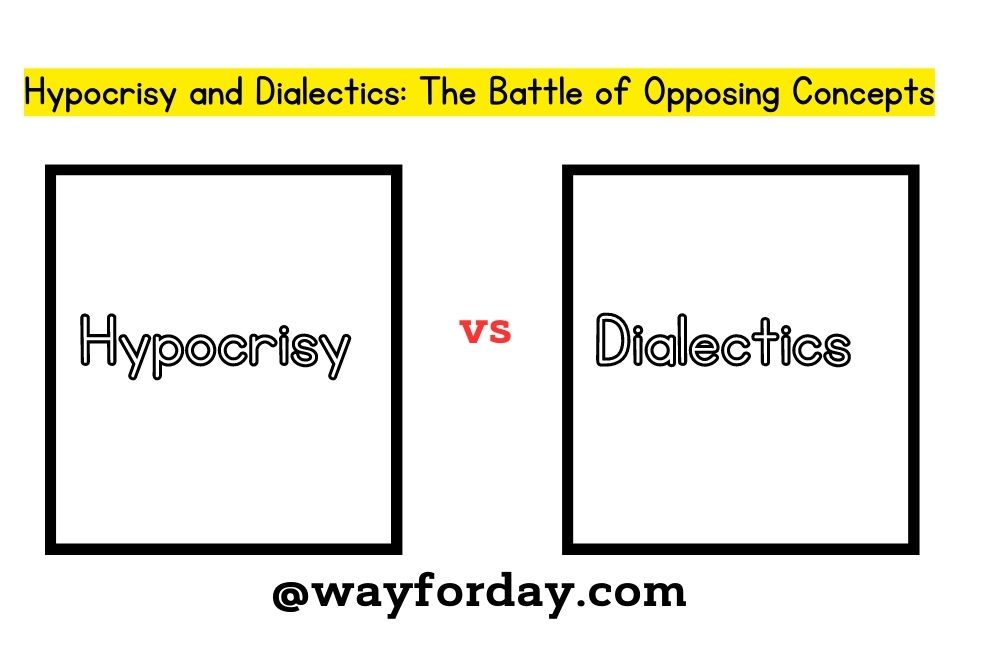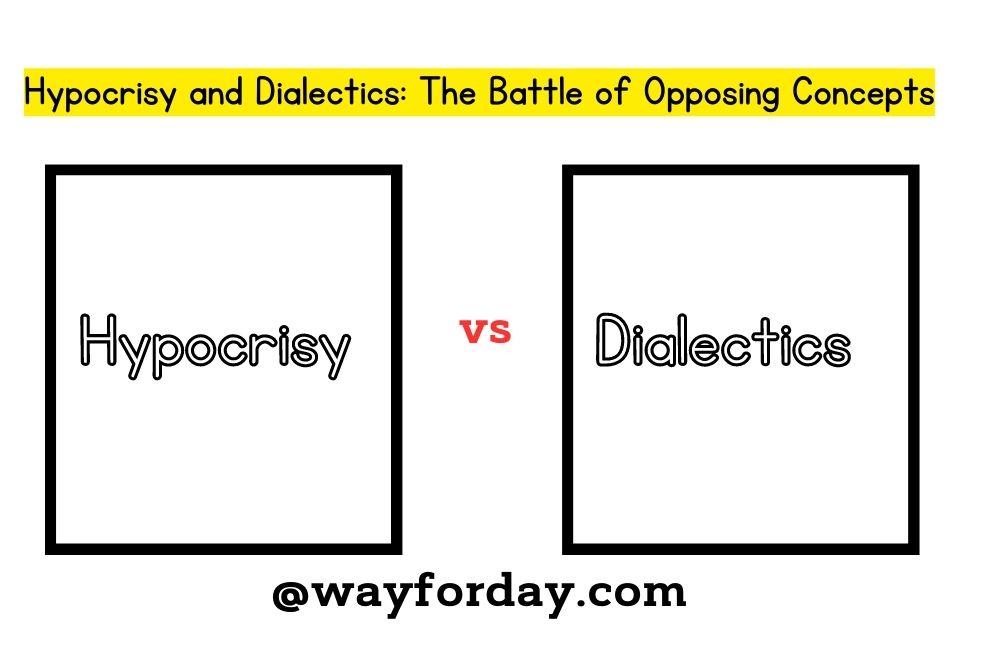Introduction to Hypocrisy vs Dialectics:
Hypocrisy and Dialectics; while hypocrisy and dialectics can often be confused, both concepts should be treated separately when considering how they apply to knowledge and truth. Although both disciplines share similarities in how they approach this field of inquiry, each has unique approaches. In this blog post we’ll explore Hypocrisy vs Dialectics and why understanding each is integral for creating knowledge about either.

Understanding Hypocrisy vs Dialectics:
What is Hypocrisy?
Hypocrisy can be defined as lying or acting inconsistent with what one claims publicly or privately to appear moral or virtuous and gain the trust of others. Hypocrites often conceal their true intentions or actions to seem more honest and noble – often leading to lost respect from peers, confusion, and anxiety for all concerned.
Hypocrisy can exist both individually and institutionally or organizationally. For instance, a business that claims it values sustainability but engages in environmentally damaging practices would be considered hypocritical.
Understanding Dialectics
Dialectics is an approach to reasoning that uses opposing perspectives to build a deeper understanding of truth, working from the premise that truth evolves and changes over time.
Dialectics is an intricate process encompassing three distinct steps: thesis, antithesis, and synthesis. A thesis presents an idea or proposition; antitheses offer opposing proposals or ideas to those presented by the thesis; dialogue and argumentation lead to synthesis, which incorporates elements from both ideas into an integrated understanding of truth.
Understanding Differences Between them:
Recognizing the distinctions between hypocrisy vs dialectics is paramount because they represent two distinct approaches to knowledge and truth. While hypocrisy involves deception and dishonesty, dialectics emphasizes honesty and transparency.
Dialogue can also provide a valuable way of approaching complex issues with more nuance and depth, engaging opposing viewpoints to understand the truth that encompasses multiple perspectives.
Hypocrisy Vs Dialectics in Relationships
Hypocrisy can have severe repercussions in relationships; when one partner says one thing and acts another way, trust can quickly dissipate, leading to betrayal and resentment. Dialectics offers couples an effective solution by helping them navigate differences more successfully and gain a deeper understanding of each other’s perspectives – helping strengthen bonds by listening closely and searching for common ground.
Hypocrisy Vs Dialectics in Politics
Politicians who engage in hypocritical rhetoric while acting contrary can quickly lose constituents’ trust, leading to their disaffection with government systems. Dialectics provide an effective means for various political views to come together and find common ground; through listening and finding compromise solutions, politicians can work toward developing even more efficient government systems.
Final Verdict; Hypocrisy vs Dialectics:
Both hypocrisy vs dialectics can often be confused, leading to severe implications in relationships, politics and society. Hypocrisy involves deception and dishonesty, while dialectics emphasizes honesty and transparency – understanding these differences will give greater depth when approaching complex issues with more nuanced approaches.






